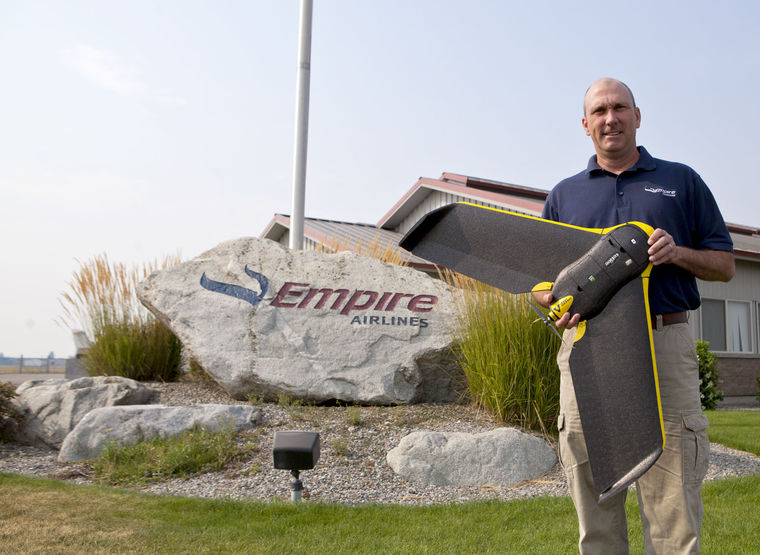
Being at the forefront of a new industry gives Empire Unmanned the opportunity to tap into a market teeming with possibility.
It also allows the Hayden-based company to help set the standard for just who can pilot their unmanned aircraft systems as demand for Empire’s precision mapping services continues to increase.
“The biggest customer out there is agriculture, and they’re the one with the most potential,” said Brad Ward, president of Empire Unmanned. “It’s limitless — we will never run out of acreage in the United States to fly over.”
Empire Unmanned is an Idaho company venture between Empire Airlines of Hayden; ADAVSO of Star, Idaho; and Blair Farms of Kendrick, Idaho.
In January, ADAVSO became the first entity in the nation to be granted a Section 333 exemption to fly drones commercially for agriculture by the Federal Aviation Administration.
“Now that we’ve already kind of broken that ice, the exemptions are coming out a lot faster,” Ward said. “You can call it the future, or give it whatever kind of cliche you want, but the fact of the matter is there’s a business opportunity growing in this industry.”
Ward added that capitalizing on the opportunity requires a company with the aviation, maintenance, and management expertise of Empire Airlines. In March, Empire Unmanned began using six FAA-certified private pilots and 10 visual observers to fly drones and capture precise images of farms throughout the Northwest.
Using certified pilots is beneficial, Ward said, because they are familiar with federal aviation regulations and terminology. All of their pilots have flown multiple airplanes, he added, which makes transitioning to a new aircraft easier.
But, with only two of the pilots having an agricultural background, there are challenges in transitioning to the brand new industry.
“The problem is because it hasn’t been available before. We’re having to educate the growers and the ag industry on what benefit it has and where it fits into what they do,” Ward said. “That education is going on as we grow.”
As the company expands, Ward said he’s looking toward a proposed UAS (Unmanned Aircraft System) Operator Certificate. The certificate process would include a background check and knowledge test, similar to the one required for a private pilot certificate, but remove the medical requirements.
“The person who flies this aircraft doesn’t need legs. If they’re not physically qualified to fly an airplane with passengers I don’t really care,” Ward said. “What I really want is a crop advisor that’s already kind of in the industry. I want to hire that guy because he already knows how to talk to farmers and he knows what he’s looking for.”
Ward hopes that the UAS certificate program will open up the pool of available talent to include people with agricultural experience, as well as those who have flown radio-controlled aircraft for years and know the computing associated with it.
Although selecting talent from this wider pool will require more training and a rougher transition, Ward thinks the outcome will speak for itself.
“By the time he’s done and is through that first growing season, he’s ideal for what we need,” Ward said. “Every pilot needs to be a salesman. They’re the ones that are meeting the grower in the field, explaining what the product does and what it can do for them.”
http://www.cdapress.com/news/local_news/article_3a87cf84-47b6-11e5-8b1b-0f85be8b31f2.html